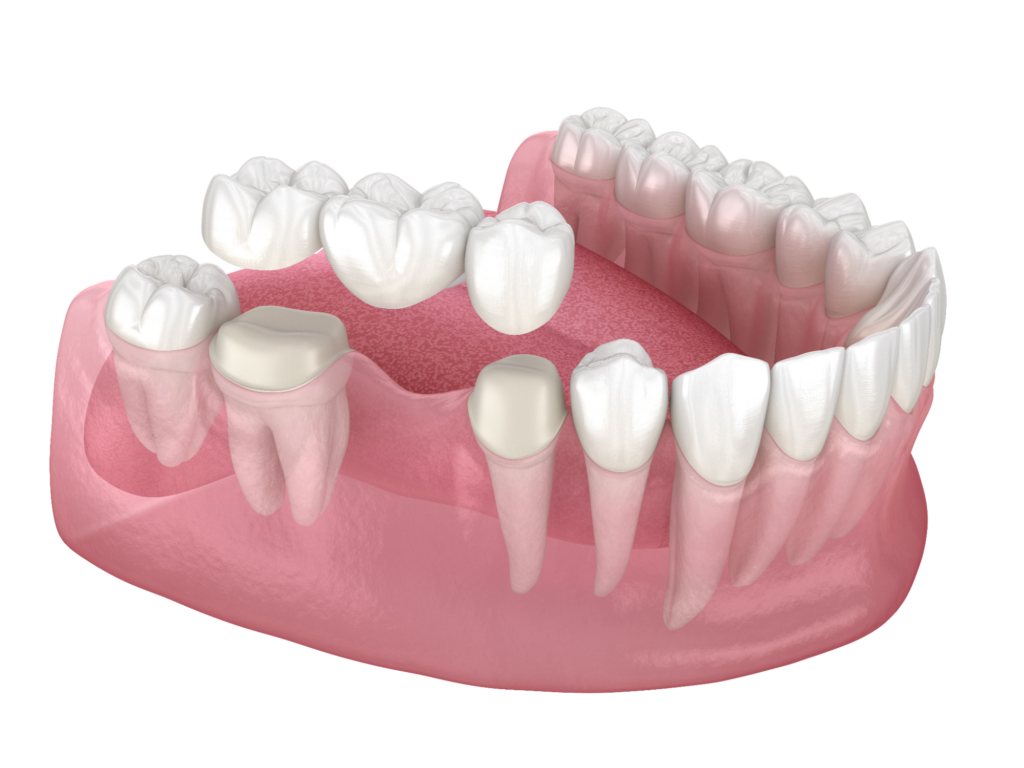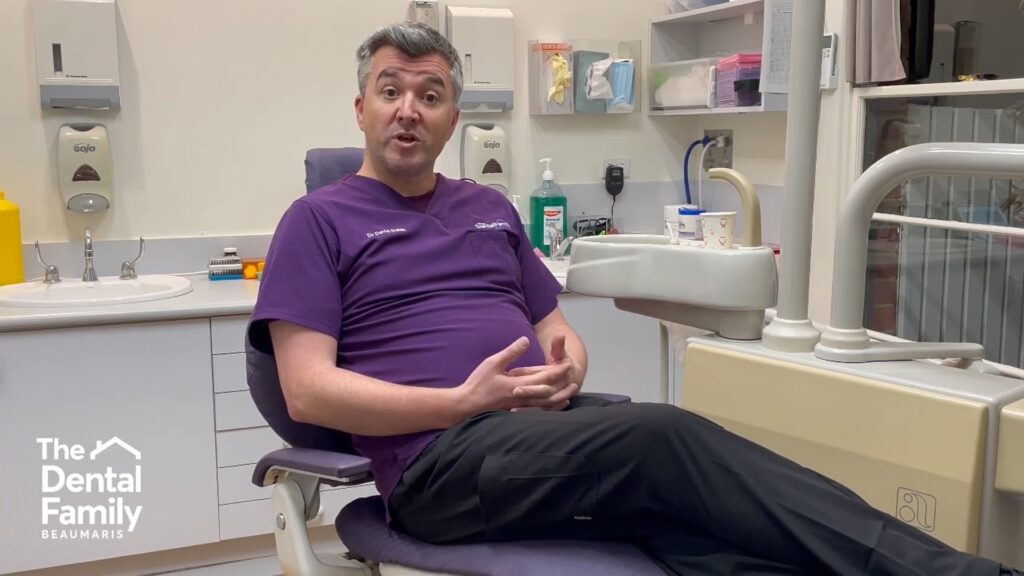Dental crowns are tooth-shaped caps, custom-fitted and placed over damaged, decayed, or weakened teeth to restore their shape, size, and strength, and improve their appearance. Crowns provide protection and support to the underlying tooth structure, preventing further damage and enhancing the overall functionality and aesthetics of your smile. While dental crowns are designed to be durable and long-lasting, they are not invincible. Over time, they may wear down or become damaged due to various factors. As a result, knowing when to consider replacing your dental crowns is essential to maintaining optimal oral health and a beautiful smile.
Signs that Your Dental Crown Needs Replacement
Regular dental crown maintenance is essential for their longevity, but sometimes, wear and tear or other issues can arise, necessitating replacement. Here are some key indicators to help you identify when it’s time to consider getting a new dental crown:
Receding Gum Line
If you notice your gum line pulling away from the base of the dental crown, exposing a part of the tooth that should be protected, it may indicate a need for replacement. A receding gum line can lead to sensitivity, discomfort, and an increased risk of developing dental problems.
Pain or Swelling
Persistent pain or swelling around the crowned tooth could be a sign of an underlying issue, such as infection or an ill-fitting crown. Seeking prompt evaluation and potential replacement can prevent further complications.
Wear and Tear
Dental crowns endure constant biting and chewing forces, which can eventually lead to wear and tear. Cracks, chips, or noticeable signs of deterioration may warrant a new crown to maintain the tooth’s structural integrity.
Damaged Crown
If your dental crown becomes cracked, fractured, or breaks in any way, it’s essential to have it examined by your dentist. Depending on the severity of the damage, a replacement may be necessary to prevent additional problems.
A Crown That is Over Ten Years Old
If your dental crown is more than ten years old, it’s time to consider a replacement, even if it appears undamaged. Factors like teeth grinding, diet and crown material impact its lifespan. While many crowns can last beyond fifteen years, regular monitoring by a dentist is crucial for older crowns to ensure they are still functioning well.
Related: What Are The Types of Dental Crowns: Advantages & Disadvantages
What Happens if I Don’t Replace a Crown?
Neglecting to replace a deteriorating or ageing dental crown can lead to a range of potential issues that may compromise your oral health and overall well-being. The possible consequences of not replacing your dental crown may include:
Allergic Reactions
Some individuals may develop allergic reactions to certain crown materials, leading to oral discomfort, inflammation, and even gum irritation.
Tooth Decay
If the crown becomes damaged or loose, it can create gaps between the crown and the natural tooth, allowing bacteria and food particles to accumulate. This can lead to tooth decay on the underlying tooth structure.
Loose Crowns
As a dental crown ages, it may lose its secure fit, becoming loose or wobbly. A loose crown not only affects chewing efficiency but also exposes the underlying tooth to potential damage or infection. Timely replacement can restore the crown’s stability and protect the tooth from further decay or damage.
Sensitivity
When a dental crown is damaged or worn out, it can expose the underlying tooth structure or nerves, which are sensitive to temperature and certain foods. This exposure can lead to tooth sensitivity, causing discomfort or pain when you consume hot, cold, or sweet foods and drinks.
Gum Problems
A poorly fitted crown can irritate the gums, leading to inflammation, swelling, and even gum disease.
Bad Breath
Accumulation of bacteria and food debris around a damaged crown can cause bad breath (halitosis).
Crown Fractures
Older crowns may become brittle and prone to fractures. If left unaddressed, a cracked crown can jeopardise the tooth’s integrity and result in more extensive dental work. Replacing the damaged crown promptly can help avoid these complications.
Improper Bite Alignment
An ill-fitting dental crown can disrupt the natural alignment of your bite, leading to discomfort, difficulty in chewing and speaking, tooth wear and other complications. Replacing the crown with a proper fit restores dental function and promotes overall oral health.
Dark Line on the Gums
An older crown made with metal, particularly those with a metal base or a metal substructure, can develop a dark line along the gum line over time. This discolouration occurs because the metal edge of the crown becomes visible through the thin gum tissue, compromising the cosmetic appearance of the tooth.
Regain Your Radiant Smile with a Dental Crown Replacement
If you are experiencing any issues with your dental crowns or suspect they may need replacement, we encourage you to book a consultation with us at The Dental Family Beaumaris. Our Bayside dentists will conduct a comprehensive evaluation and provide honest recommendations tailored to your specific needs and budget. Whether you require all-ceramic crowns, porcelain-fused-to-metal crowns, or gold crowns, we are here to help you regain your radiant smile. Don’t hesitate to reach out to us for your dental crown replacement for a natural-looking and functional smile.



